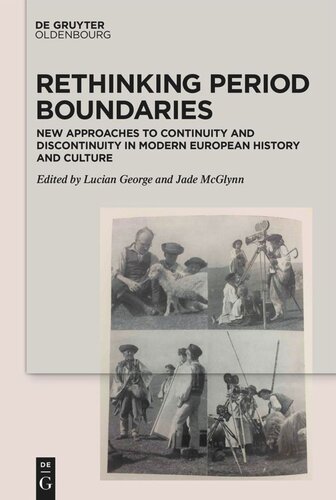

Most ebook files are in PDF format, so you can easily read them using various software such as Foxit Reader or directly on the Google Chrome browser.
Some ebook files are released by publishers in other formats such as .awz, .mobi, .epub, .fb2, etc. You may need to install specific software to read these formats on mobile/PC, such as Calibre.
Please read the tutorial at this link: https://ebookbell.com/faq
We offer FREE conversion to the popular formats you request; however, this may take some time. Therefore, right after payment, please email us, and we will try to provide the service as quickly as possible.
For some exceptional file formats or broken links (if any), please refrain from opening any disputes. Instead, email us first, and we will try to assist within a maximum of 6 hours.
EbookBell Team

4.3
88 reviewsPeriodization is an ever-present feature of the grammar of history-writing. As with all grammatical rules, the order it imposes can structure but also stifle historical interpretations. Though few historians consider their period boundaries as anything more than useful guidelines, heuristic artifice all too easily congeals into immovable structure, blinkering the historical gaze.
In this cross-disciplinary volume, an international group of historians and cultural scholars considers different ways in which accepted period boundaries in modern European history and cultural studies can be challenged and rethought. Alongside a theoretical introduction and epilogue, the volume contains seven case studies exploring hitherto under-researched continuities and discontinuities in the social, cultural, intellectual, literary, labour and art history of 19th- and 20th-century Europe, with a particular focus on the continent’s East. Topics covered include French anti-communism, peasant memories of serfdom, cosmopolitan art in a nationalist age, the communist takeover of Poland, Russian literary history, and national day traditions in East-Central Europe. To problematize period boundaries, the chapters in this volume adopt the perspective of social groups that standard periodization schemes have ignored; shine a light on "awkward" actors who have appeared out of step with canonical understandings of their period; consider how historical actors themselves divide up history and how this informs historical practice; and explore the difficulties that the non-synchronicity of different historical processes can pose for periodization.